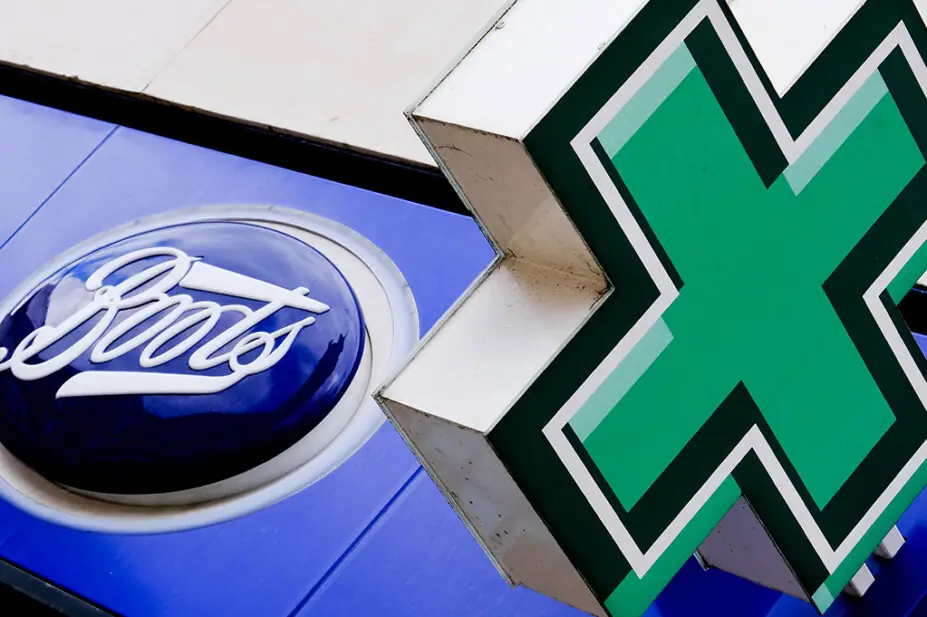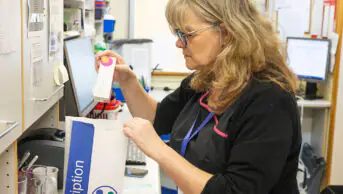
Boots pharmacies have delivered more than 1 million Pharmacy First consultations in England between the start of the service on 31 January 2024 and 8 August 2025.
This includes consultations for the seven clinical pathways, GP referrals for minor illnesses and urgent medicines supply, a spokesperson for Boots confirmed to The Pharmaceutical Journal.
The most common condition for which patients sought treatment and advice under the service was uncomplicated urinary tract infections (UTIs) in women aged under 65 years, followed by sore throats, earache, infected insect bites, sinusitis, impetigo and shingles.
Alex Roberts, director of healthcare services at Boots, said the 1 million milestone “marks a significant moment” for the multiple.
“With no appointments necessary and availability at weekends and evenings, the NHS Pharmacy First service provides accessible and convenient healthcare, offering an alternative to visiting a GP. We’re proud of our pharmacists and healthcare teams for their commitment to this service, supporting their customers and the NHS.”
According to latest available data published by the NHS Business Services Authority, the community pharmacy network in England as a whole provided 6.4 million Pharmacy First consultations between January 2024 and April 2025.
The national figures include:
- GP and NHS 111 referrals for minor illnesses (1,790,645 consultations);
- Urgent medicine supply (1,679,848 consultations);
- Acute sore throat (1,035,733 consultations);
- Uncomplicated UTIs in women aged under 65 years (784,853 consultations);
- Sinusitis (360,491 consultations);
- Acute otitis media in children (349,072 consultations);
- Infected insect bites (227,893 consultations);
- Impetigo (124,894 consultations);
- Shingles (76,146 consultations).
Leyla Hannbeck, chief executive of the Independent Pharmacies Association (IPA), commented: “With nearly 6.5 million consultations, these latest figures show just how valuable Pharmacy First is for millions of patients.
“They underline just how important community pharmacies are as the ‘front door’ of the NHS.”
She added that the government should build on the initial success of Pharmacy First as it develops its neighbourhood health service approach.
“IPA is calling for Pharmacy First to be extended to cover more common conditions — taking pressure off GPs and getting patients the vital care they need faster and on their doorstep at a time that suits them.
“IPA wants to see the number of GP referrals come down. As a sector we need to work together with the NHS to increase patient awareness of Pharmacy First so more patients know it is a service they can access directly anytime they need it, reducing the need for an inconvenient and resource wasting contact with their GP first.”
Janet Morrison, chief executive of Community Pharmacy England (CPE), said: “The Pharmacy First service has been an unprecedented success in providing faster access to healthcare advice and treatment.
“Community pharmacy teams have done an amazing job both at implementing the service (given the pace that was required to launch the service) and at providing the service — despite several bumps along the way. The latest figures are a testament to the sector’s commitment to supporting the public’s health needs.
Morrison added that CPE was “keen to discuss how to make this happen through further expansion of the Pharmacy First service and by developing more services that can emulate the successes seen so far with Pharmacy First”.
Earlier in August 2025, data published by the NHS Business Services Authority revealed that uptake of the Pharmacy First service is variable across England, with 39% of pharmacies meeting the threshold required for April 2025’s monthly service payment.
A report by Healthwatch, published in June 2025, found that 86% of patients reported a positive experience of Pharmacy First.


